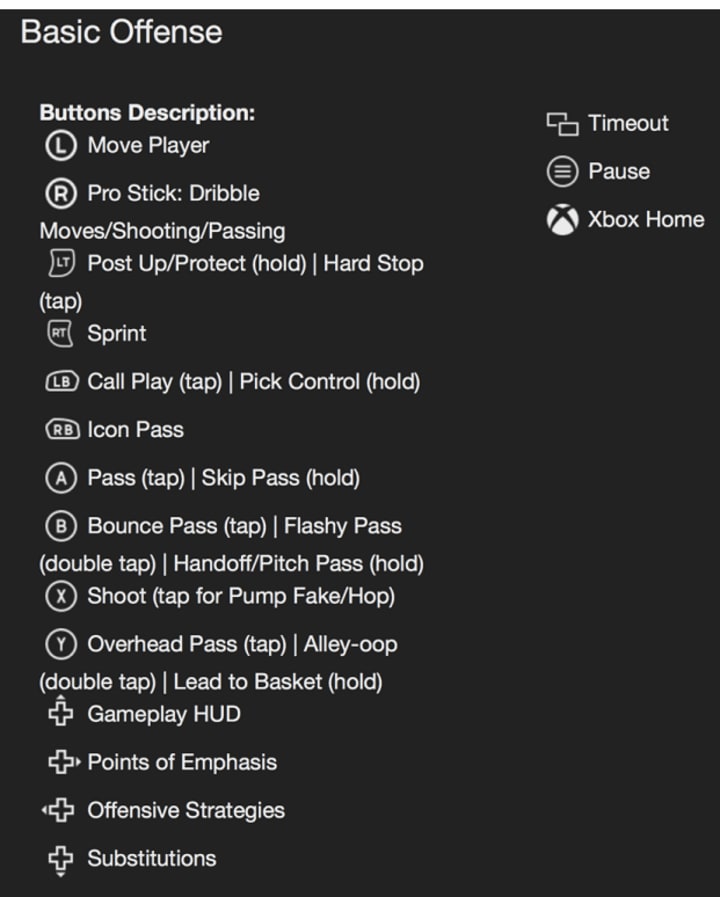Gaming In Adulthood
Combating negative perceptions

(Originally penned 11/9/2019 - updated 12/5/2021)
I have been an avid gamer since I was nine years old. I might be enjoying games now more than ever before.
As I grow older, wiser, and more intellectually complex, my perception of video games is expanded and revised. Where I would once have breezed through ancillary information about secondary and tertiary characters and storylines, I now digest in earnest, building a larger world around them that exists off-screen in my imagination. My affinity for more story-driven, narrative, and strategic games with thought-provoking premises and intuitive control schemes continues to grow each year, while I have all but abandoned the mindless and bombastic event games lacking in compelling characters and believable plot lines. Through lived experience, I understand the motivations of protagonists and antagonists alike on levels that I could never have hoped to grasp as a child or even a young adult, which begs the question, who were these carefully structured, multifaceted adventures made for? Is the target demographic really my seven, thirteen, and eighteen-year-old nephews? Could there be a deeper objective? Perhaps speaking plainly to the child in a way that they can understand, the teenager on a deeper emotional level, and, ultimately, the adult in ways beyond the scope of an adolescent’s understanding? Before I took up the task of researching and penning a story on this subject, I had to ask myself if I understood what it was that video games had done to nurture me as a person. And, from those findings, I would have to extrapolate what it could mean for someone else. This I had to do before I muddled my raw opinions with the findings of scientific and psychological studies.
Sections
- The History Of Me
- Gamer Defined
- Mitigating Perceptions
- The Link Between Games And Fluid Intelligence
- Childhood Gaming And Unicorn People
- New Perspectives
- Recommendations (2021 Update)
- Further Reading

The History Of Me
The first console game I ever played was Double Dragon for Atari 2600. The morning we got it, I waited for my older brother to hook it up to the television in the downstairs den. He showed me the console apparatus one by one while unpacking it and I watched with earnest, curious about the game and wondering how long this initial process was going to take. When it was ready, we only played together for a few minutes before I got bored and left him alone.
Plenty of other fantastic games came along in the years to follow, along with cooler consoles and controllers with more than one button. All the games that we used to play at the arcade had begun to be released for home consoles and it blew our minds. We relished in so many different titles and each one of them seemed to expand a part of my creative brain in some numinous way that I can still feel today. Super Mario Brothers and Gauntlet for the Nintendo Entertainment System, Battle Toads and Sonic the Hedgehog for Sega Genesis, Super Metroid and Donkey Kong Country for Super Nintendo, Ecco the Dolphin and Dragon’s Lair for Sega CD, and so many more vibrant games that filled the hours between returning home from school and eating dinner near the close of the night.

I didn’t actually come into my own as an avid gamer until I was 9 years old and discovered Final Fantasy 7 by SquareSoft for the Sony Playstation. I had been spending time at a friend’s house when I walked by the living room and saw my friend’s father playing a game on the television. He was absorbed by what was happening on the screen, but he must have seen me out of the corner of his eye, because he turned to me and waved me off, muttering something like “…this is not for y’all — this is for adults. Go downstairs with Jeffrey.” I listened, but I returned at least twice to spy on him and this adult game. I immediately felt like I was seeing something taboo because the character dialogue boxes had curse words in them and the graphics were way too advanced for me to even comprehend at the time.
Several months later, I convinced my brother to rent a copy of the game from our local rental shop and I spent the next several weeks watching him play. The story was engrossing, the characters were compelling and complex, the setting was grungy and dirty, the themes were very mature, and the gameplay was cinematic enough for me to sit back and watch instead of picking up a controller. The whole affair felt very adult and I remember him pausing the game every time my mother came around, lest she see something that would prompt her to take it away from us.
That was the first game that I had ever experienced that had made me daydream beyond the screen. Where all the other games leading up to it were left with the controller, forgotten once the system was shut down, Final Fantasy remained with me when I went to school, walked idly through the backyard, scribbled short stories in my notebooks, and when I went to lay my head down at night. It was a fantastic adventure that had managed to reach a part of me that no other game, film, or television show ever had, and I knew right away that it was something special.
Since then, there has never been more than a year of my life that has passed without me being intensely absorbed by a particular game or suite of games. The most engaging adventures in recent years remain in my subconscious as towering symbols of great meaning, occasionally called to thought in dreary moments of inspirational drought. Their intense and absorbing storylines set over hundreds of hours of gameplay ignite my creative flames and inform my affections in very permanent ways.
Gamer Defined
Most people seem to have differing opinions on what the term gamer means. For some, it might call to mind a person who spends every night playing until bed, for others, a social player who meets up with friends once a week for a gaming binge, and for others still, a professional e-sports player who games for a living. Some would even consider those who exclusively play games on their phones as exempt from the label entirely. Before we go any further, we need to agree on a baseline for what a gamer is. To do that, I’m going to take into account the median of the minimum amount of hours necessary in each of the case studies I reference on the subject to qualify a participant as a gamer. This will allow us to ensure that all of the statements, suggestions, and findings that follow have a lowest common measure about which there is no ambiguity. That minimum qualifier is 20 hours a month, which works out to 5 hours a week. If you or someone you know spends at least 35 minutes a day engaged with a video game then, in every practical sense, they are a gamer.
Whether or not you or anyone you know identifies with the label, it is important to understand that anyone falling into this category is a part of the referenced population.
Plenty of people self-identify as gamers even if they don’t play 20 or more hours a month. I personally have spells where I may go several months without picking up a game. But, when I come around to a particular title worth my free time, I can go weeks where I play several hours a night. I still carry with me my experience, passion, and longing. A hiatus, either intentional or incidental, cannot revoke your status if you’re still affected by or remain wistful about video games.
Mitigating Perceptions
There has always seemed to be a generally negative perception of Adults who play video games in the collective consciousness of society that I never fully understood. In pop culture, they are often portrayed as unattractive, overweight, unmotivated, and intellectually lazy — though that last stereotype seems counterintuitive due to the wildly complex nature of today’s video games.
About sixteen years ago, along with the Fifth Generation of Video Game Consoles, came the establishment of the standardized sixteen-button controller and the rapid expansion of in-game functionality. The controller moved closer toward what it was originally intended to be — which was an extension of the player and the tool through which the game could be experienced. There were no more single button action commands that moved the story forward or made the characters perform elaborate actions. Gradually, all things began to involve an intense dexterity and the players with the most advanced hand-eye coordination and finesse of wit were rewarded.
Take a look at the complete control scheme for the wildly popular NBA 2K19 by Visual Concepts for the Microsoft Xbox One:

As complex as this seems already, it is only the scheme for one state that the player can be in. There are entirely different sets of controls for other states, like Dribbling, Passing, and Offense:


Believe it or not, there are also three pages of Advanced Controls with even more ways to use the buttons and sensors in the controller.
The NBA 2K series has sold an astounding 90 million copies since its inception, so its complicated layout is not new or rare. In fact, it’s barely unique, as most sports games have over 50 basic control functions. Maybe it's because the characters on the screen are performing something so essentially human — and we all know what it’s supposed to look like, along with the breadth of motion that people are capable of. The more realistic your toolkit of actions, the more engaged you will be with the game. In the case of sports games, even the characters themselves are real athletes that exist in your world. Developers want you to suspend your disbelief and become Giannis Antetokounmpo, Tom Brady, or Alexander Gustafsson. Because, they know that these athletes are avatars for the players, and if they can convince you for just a few moments that you are charging into the Octagon at UFC 232 against Jon Jones with the crowd screaming at your back, then maybe you’ll be inspired and excited enough to pick up the controller again the next day.
Video games have evolved tremendously from the days of boxy eight-bit figures sliding lifelessly across a flat world. Now, you can experience worlds nearly indistinguishable from your own, like the photorealistic graphics of The Blair Witch by Bloober Team/Lionsgate Games:

These images are not cut-scene promotional material, but screenshots of actual gameplay graphics from the Microsoft Windows edition of the game. And, if that doesn’t interest you, then you can explore entirely original worlds as fantastic as your strangest fantasies, like Journey by Thatgamecompany / Sony Computer Entertainment:

For the thrill-seeker chasing that big scare, there are nightmarish hellscapes rendered with unimaginable detail like Adam — Lost Memories by AdamDubiGames:

Whatever sort of game you’re looking for, there is a modern title out there for you.
Adventures with a solid story and cast of compelling characters are not unlike films and television shows. On average, American families binge-watch television and film well over 120 hours a month according to a 2017 Nielsen Report, and some reports even put that number upwards of 240, which averages out to 4 and 8 hours per day. Oddly enough, those same consumers would look down on a person spending the same or significantly less amount of time playing a video game. There are glaring holes in the logic of this thinking that become more apparent when you take a moment to consider them.
Have you ever watched something that touched you in ways that you didn’t expect? Have you ever walked away from a film with a new perspective on life and your place in the world? Have you ever cried, cheered, screamed, or laughed aloud while watching a particular show? Many people have these experiences through modern games.
A film is a visual story told over a period of a few hours, rarely more than three, and usually more than one. A television show is a bit more of a commitment, as it is a visual story told over many hours and, often, many years. A narrative video game is a visual, interactive, user-controlled story told over a period of time that can range from three to fifty hours. The amount of character and plot development you can fit into a period that massive is astounding, and that might be why people who game are more engaged with their stories than those who sit idly by and watch. The consumer of a film or television show has no control over the story unfolding on the screen — they are bystanders. A gamer compels the inertia of the story and greatly influences its trajectory, especially in the case of games like the Telltale Walking Dead series, where your actions and decisions hold real gravitas that carries over the course of three titles, drastically influencing how the story will unfold and, ultimately, how it will end.
This consumer-driven story format is even beginning to see a cross-over into film. Playing sort of like a Goosebumps Choose Your Scare novella of the 90s, 2018’s Black Mirror: Bandersnatch film by Director David Slade for Netflix is an interactive, choose your own path film experiment. At various points in the film, the story pauses and the viewer is given a choice of actions to perform to move the events forward in a given direction. Each choice has an immediate impact on the story and influences how the protagonist’s journey will end. It performed spectacularly on the streaming service, scoring a 74% on Rotten Tomatoes and winning the Prime Time Emmy Award for both Outstanding Television Movie and Outstanding Creative Achievement in Interactive Media Within a Scripted Program. Clearly, there is a place for this kind of storytelling in the lives of the average consumer if they could only get past the false stigmas surrounding the gaming world.
There are plenty of games with layered, character-driven stories that put a number of blockbuster and Oscar contender films to shame. A dystopian epic like The Last Of Us by Naughty Dog could have easily been a strong contender for Best Picture at the 2014 Academy Awards had the story been simplified to film. Celebrated film and classical composers are already penning moody and emotive scores for many of today’s popular games. Like Academy Award-winning composer Hans Zimmer creating the music for The Simpsons Game by Electronic Arts, and the main theme for Call of Duty: Modern Warfare 2.
While pop culture continues to portray gamers as bizarre, counterintuitive stereotypes of the 80s when games were eight-bit, whirling, neon-colored fever dreams, the world is evolving around us. The global video game industry generates more annual revenue than the entirety of the film and television industries combined, garnering an estimated $152.1 billion dollars in 2020 alone. Nowhere is this popularity more evident than in massive, international events like E3 where communities of millions huddle around conference halls, project booths, tents, and IMAX grade film projectors to get a glimpse of what their favorite studios are working on. The 2018 E3 trailer for Hideo Kojima’s long-awaited epic Death Stranding starring Norman Reedus, Lea Seydoux, Mads Mikkelsen, and Guillermo Del Toro among others, has over 5.6 Million views on YouTube. Its follow-up release date reveal trailer posted six months later has over 8.8 Million views. That’s twice the number of people who watched the premiere of the latest season of Warner Bros. You. And these are the little leagues compared to genre titans like the insanely popular Fortnite, whose season 5 debut trailer was watched over 51 million times. That’s roughly the same amount of tickets sold for the 2004 event film The Passion of the Christ.

The Link Between Games and Fluid Intelligence
There has long been a theorized link between strategic games and intelligence. We can all relate to this theory when we think of professional chess players. Typically, they are stereotyped as hyper-intelligent, often eccentric savants whose ability to calculate in-game movements, read their opponents, and delay immediate gratification for future rewards seem standard. And, that last feat about delaying gratification is an ability that cannot be overstated.

Research suggests that delayed gratification and impulse control can dramatically improve your life over the course of time. The ability to ignore temptations over long-term goals has been correlated with success in life and intelligence.
Take the findings of the Stanford Marshmallow Experiment conducted by Psychologist Walter Mischel in 1972 as an example. A child, with a preference for either Marshmallows or Pretzel sticks, was offered one of the less preferred snacks to eat immediately, or two of the more preferred snacks if they were able to wait a short period of time, during which the researcher would leave the room and then return. Follow-up studies on the subjects in 1988 and 1990 revealed that the children who were able to muster the willpower to delay their gratification in favor of a preferred reward had higher SAT scores, more educational achievements, lower Body Mass Indexes, and generally better life outcomes. It was concluded that the ability to resist temptation made for a more well adjusted, intelligent, and prosperous person.
Skilled gamers have been practicing delayed gratification for decades. When you are forced to take a few extra hits while waiting for just the right moment to counter your opponent and win the round in a fighting game; when you forego a cool weapon upgrade in order to store your points for a more massive upgrade later on; and when you sacrifice your own life for the survival of the team. Few video game genres illustrate this better than the Multiplayer Online Battle Arena (MOBA).
According to an extensive study by Athanasios V. Kokkinakis, Peter I. Cowling, Anders Drachen, and Alex R. Wade titled Exploring the relationship between video game expertise and fluid intelligence published on November 15th, 2017, there is a direct link between skilled performance in MOBAs and cognitive ability. Examples of these types of games are League of Legends, DOTA, Strife, and the ill-fated Dawngate. Where most video games correlate to some sort of cognitive ability, like First Person Shooters (FPS) linking to hand-eye coordination, accuracy, and velocity, it is demonstrated expertise in the MOBA that appears linked to memory, tactical planning, strategy, higher IQ Scores, and Fluid Intelligence. It would seem that the same cerebral muscles used by world-class chess players on the global stage are flexed when engaging with a demanding, team-driven, strategic game. It’s just an unfortunate blunder of culture that successful professional MOBA players like Zachary Scuderi, Lee Sang-hyeok, and Søren Bjerg aren’t viewed as men of exceptional intellect.
Childhood Gaming and Unicorn People
There are many examples of avid childhood gamers growing up to be extremely successful, eclectic, and extraordinary adult intellectuals, and I don’t believe that it is undue inference to correlate these ideas. These are rare individuals — the unicorns of human beings, but it is through their existence that the rest of humanity learns what to strive toward. Gaming in younger years can train a child with the same cognitive conditioning mentioned in the previous section. The younger you are when you learn things like strategic planning, teamwork, self-control, hand-eye coordination, and the vastly underrated expansion of the imagination, the easier it will be for you to acquiesce these skills into your everyday life.
Take billionaire inventor, engineer, and entrepreneur Elon Musk for example. He is an admitted fan of video games and in between planning humanity’s colonizing trip to mars through his company SpaceX, building the cars of the future through Tesla Motors, and creating a subterranean ultra-high-speed railway beneath Los Angeles through the Boring Company, Elon manages to find time to dedicate to intense gaming. What I mean by intense gaming relates to games that require an extensive amount of undivided attention and cognitive awareness, like the Civilization series, a turn-based strategy game where you build, nurture, and maintain a civilization starting as a small nomadic tribe and evolving into a space-faring megalopolis. He has even called the second entry in the popular space opera series Mass Effect by Bioware “One of the best games ever.” I can definitely agree with that sentiment, as it has also had a measurable impact on my own convictions, affinities, dreams, and creativity.
It is not difficult to see how Elon’s game choices like the aforementioned Mass Effect and Civilization series have led to the life decisions he has made regarding technology, engineering, and human expansion. What is a bit more difficult to infer is how his love of a game like Super Smash Brothers by Nintendo has informed and likely sharpened his competitive edge. At first glance, Super Smash Bros is a family friendly free-for-all with some of video games’ most recognizable and iconic characters, like Mario, Donkey Kong, Link, Pikachu, and Sonic. But, if you look beneath the surface, you will find one of the most fiercely competitive, advanced, and nuanced fighting games of all time. To this day, several entries in the series are played in open tournaments across multiple countries by some of gaming’s elite for cash prizes upwards of $50,000.
New Perspectives
We have drawn some important conclusions here that may give us, or someone we know who is on the fence about gaming, a few new perspectives on the subject. Let’s summarize them:
- Games today can be graphically indistinguishable from reality, as wildly imaginative as your strangest fantasies, and as disturbing as your darkest dreams.
- Gaming is not as simple as pressing the buttons on a controller in a given sequence but can be very complex with hundreds of commands stretching over a number of situations and states of being.
- Narrative video games and film are not very different, except for the crucial active component where the consumer immerse themselves in the story, controls the protagonist’s actions, and influences the trajectory of the adventure.
- Many of today’s most popular titles feature Oscar-worthy story content, written by consummate professionals, boasting soundtracks by seasoned veterans of film and television.
- The gaming industry has overtaken film and television in terms of gross annual revenue and continues to rapidly grow each year.
- Actors, actresses, and even directors are getting involved with today’s cutting-edge video games.
- There are extensively researched, direct links to gaming and cognitive ability, especially with team-oriented games.
- Specific, intense gaming in childhood may lead to generally better life outcomes.
If you’ve been uncertain about gaming or even stopped out of some obscure sense of outgrowing the medium, I hope you are able to take something meaningful away from this story. The collective consciousness of society is slowly catching up to the modern-day in terms of negative perceptions relating to adult gamers, but you don’t have to wait for them to dive in. Because, as we now know, the entertainment, artistic, and cognitive value of video games cannot be overstated.
If you’re new to this world or haven’t dipped your toe in the pool for a few years, check out some of my personal recommendations below.
Recommendations (2021 Update)
Some great MOBAs to flex some of those cognitive muscles more closely related to fluid intelligence:
- League of Legends (2009)
- Dota 2 (2013)
A real-time strategy game that can teach you a lot about resource management, patience, and tactics:
- Age of Empires II (1999) & III (2005)
- Company Of Heroes 2 (2013)
An epic experience with an extremely personal, player tailored story spanning across three titles and hundreds of hours of gameplay:
- Original Mass Effect Trilogy (2007–2012)
- The Walking Dead Telltale Series (2012–2016)
A heavily cinematic, deeply emotional experience with a complex, intuitive control scheme meant to enhance and propel the story:
- Metal Gear Solid III: Snake Eater (2004)
- Metal Gear Solid V: The Phantom Pain (2015)
- The Last Of Us I (2013) & II (2020)
A more casual cinematic experience that has very little to do with complex gameplay and everything to do with story, starring Ellen Page, Willem Dafoe, Eric Winter, Kadeem Harrison, and Caroline Wolfson:
- Beyond: Two Souls (2013)
An epic action event game that proved to be a popular commercial success as well as a great character-driven story:
- Halo (2001 — )
Fantasy adventures on par with any great book:
- Final Fantasy 7 (1997), 9 (2000)
- Zelda: Majora’s Mask (2000) & Windwaker (2002)
- Dark and disturbing horror games with engrossing stories:
- Alien: Isolation (2014)
- Silent Hill 1 (1999), 2 (2001), 3 (2003)
- Resident Evil Remake (2002)
- Rule of Rose (2006)
- A Plague Tale: Innocence (2019)

Further Reading
Delayed Gratification and Impulse Control by Kendra Cherry
Exploring the Relationship Between Video Game Expertise and Fluid Intelligence by Athanasios V. Kokkinakis, Peter I. Cowling, Anders Drachen, and Alex R. Wade
The Effects of Video Games on Human Intelligence by Lifeng Yuan and Wenxiang Hu
Footnote
Follow me on Instagram and Twitter. Share a post! It really helps! You can also check out my personal blog Metallically Black where I talk about writing, life, dying, and what have you.
Thanks for reading!
About the Creator
A. T. Steel
Mediocre Writer, Terrible Poet, Starving Artist, LGBT(Q)IA+. My Links , My Blog Metallically Black , Business Email







Comments (1)
I never have time to game anymore. I do miss it sometimes. But I find myself being too busy